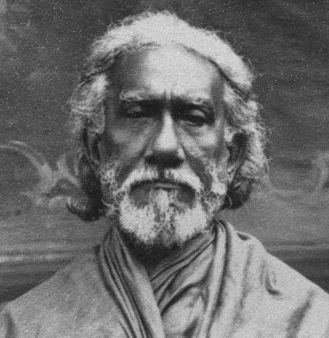 There was a period in my life, sometime during my mid-twenties, when I was despondent because my girlfriend had left me.I simply couldn’t comprehend how and why this had happened – and so unexpectedly!
There was a period in my life, sometime during my mid-twenties, when I was despondent because my girlfriend had left me.I simply couldn’t comprehend how and why this had happened – and so unexpectedly!
Maybe the deep bond that I felt with her had eclipsed my awareness of residual effects of traumas of her dysfunctional childhood. Maybe she could already sense that I was on a spiritual path where she would be unable to follow me. Whatever had prompted her, the change came like a sudden, cruel blow and my pain was genuine and intense.
I found an opportunity to talk with a friend, a young American Psychology graduate who, like me, had come to Italy to be with her loved one.
“I don’t understand,” I cried. “All the love she first had for me has changed into hate!”
Her matter-of-fact answer surprised me. “That’s the same”, she said simply, without any further explanation.
Sometime later, I returned to “Samadhi”, the well-loved poem Yogananda wrote while riding on the New York City underground. In it, we find a powerful poetic expression of the ecstatic happiness that accompanies a limitless expansion of consciousness. “Memorize it”, Yogananda used to tell his disciples, “For that is who you really are!”
These are the verses that made me ponder:
Love, hate, health, disease, life, death,
Perished these false shadows on the screen of duality.
Are love and hate really the same as my friend the Psychologist had said? Just shadows, both of them? and moreover false ones?
Something my older sister had once told me also came to mind. “Mom said to me that if Pop ever became unfaithful, she would start to hate him.”
My then teenage sister, who was introspectively inclined, enriched her story with some comments of her own: “I think that’s pretty superficial. I wouldn’t hate him at all! I would try to think about myself and about him. I would try to understand!”
I, too, was trying to understand, and my despondency added vigor to my spiritual efforts.
In Autobiography of a Yogi, Sri Yukteswar actually speaks about two manifestations of love:
Ordinary love is selfish, darkly rooted in desires and satisfactions. Divine love is without condition, without boundary, without change. The flux of the human heart is gone forever at the transfixing touch of pure love.
To me this grand promise came to mean that if I directed my ordinary love upwards to Guru, my capacity to accept and love others (including my own immature self) would increase proportionally and I would move closer to the samadhi that Yogananda described in verse.
What about hate – that other “false shadow”? Can that also connect us with God?
Ordinary hate surely cannot! Hitler’s hatred of Jews was tragic human ignorance. It was true meanness – extraordinary only in its scope of formidable psychic energy by which he involved a whole nation. The big lie on which it was founded isolated him and his people from humanity at large and from any peaceful unfolding of events. It could only lead to his eventual destruction after a twelve-year cycle of national and international catastrophe.
Nor was Hitler’s intense hatred compensated for by love for anything. Had he really believed in his own theory of “blood and soil” he would have tried to save his country from further bombings and war. Instead, he used what had remained of his power to drag Germany to destruction along with him.
There is an extraordinary story of Ravana and his hatred of Rama.
Ravana’s passion for destruction had gained him a boon from Shiva: indestructibility. This boon, however, did not give him the happiness he wanted – far from it! Maybe he was afflicted with an “anguishing monotony” that, as Yogananda explains, will eventually prompt people, after countless incarnations, to seek God. Alas, Shiva could not help the poor devil, whom he himself had made indestructible. “Go to Vishnu”, was his message.
Ravana then directed all his hatred toward Rama, who was an incarnation of Vishnu. He kidnapped Rama’s wife and directed his army and all his formidable powers against the gentle King of Ayodhya.
Ravana must have known all along that he could never win against God, the Only One. How can one destroy Cosmic Consciousness? But Ravana kept trying.
Eventually, this hatred led to his release. His fixation on Rama made him less and less human and more and more divine, until Rama gave him divine indestructibility by killing his ego form and making him one with Himself.
Success on the spiritual path does not depend on how good or bad you are, but upon the degree to which you can direct your energies (love and hate included) upward from the heart to the “liberating spiritual eye”. In the effort to do so, return to Master’s ecstatic poem:
Anger, greed, good, bad, salvation, lust,
I swallowed, transmuted all
Into a vast ocean of blood of my own, one Being!

4 Comments
It is so important to overcome hatred. May God help us in our efforts to fill our hearts with love.
He will, to the degree in which we offer our hearts to Him🙏
AUM GURU🙏🏻🙏🏻🙏🏻
Thank you, Darshan, this is so beautiful and pertinent right now.